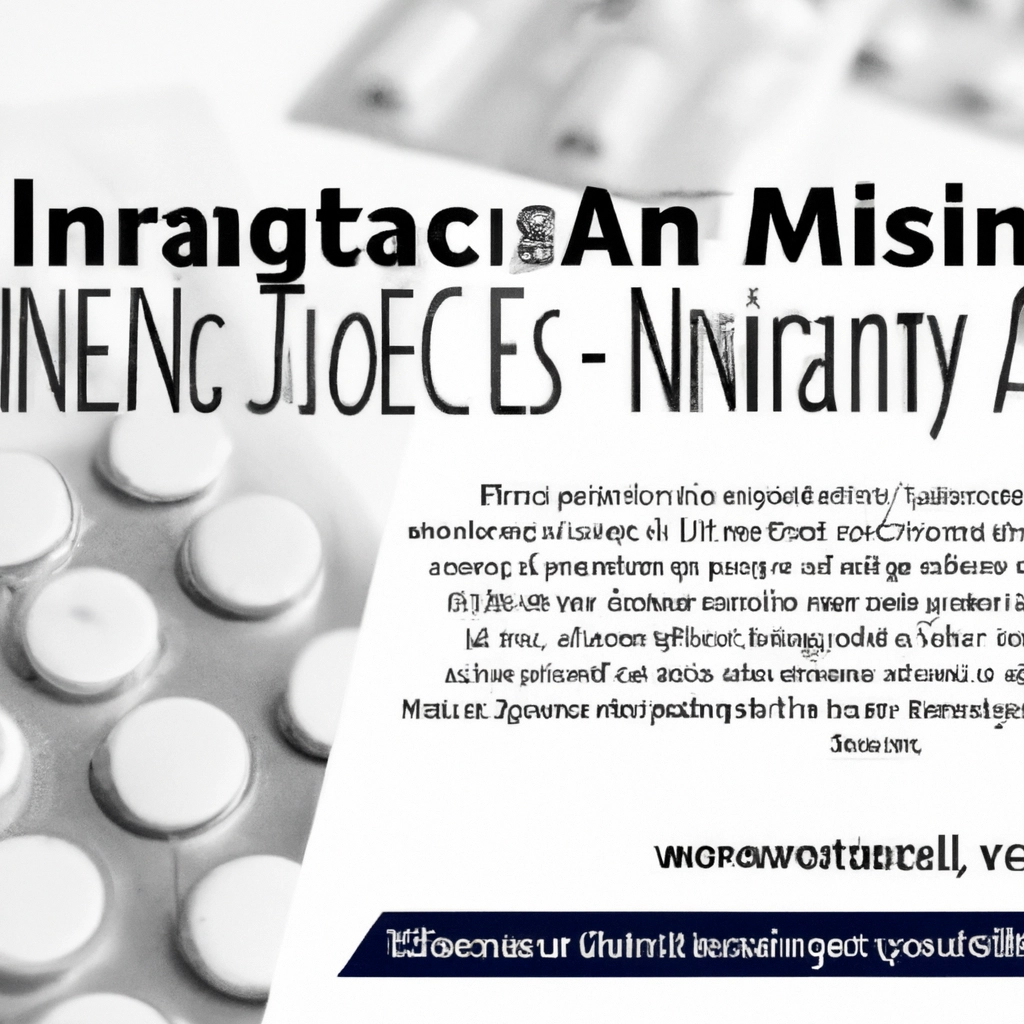

Unemployment refers to the condition of being without a job, and it can have significant negative impacts on a person’s health. On the other hand, diabetes is a chronic health condition characterized by high levels of sugar in the blood.
The relationship between unemployment and diabetes is important to examine, as research has shown that unemployment can increase the risk of developing or exacerbating diabetes.
Unemployment can lead to feelings of depression, anxiety, and stress, as well as physical health issues such as high blood pressure and heart disease. The negative health effects of unemployment can also impact the management of diabetes, making it more challenging for individuals to maintain proper self-care and medication adherence.
As a result, the relationship between unemployment and diabetes management is complex and deserves further attention in both research and healthcare settings.
Furthermore, studies have shown that unemployment can widen income-related inequalities in rates of diabetes, impacting lower-income populations disproportionately. This highlights the importance of addressing the public health implications of unemployment and its effects on chronic conditions like diabetes.
Understanding the impact of unemployment on health and diabetes management is critical for developing interventions and policies to support individuals experiencing unemployment and living with diabetes.
The Link Between Unemployment And Diabetes
Understanding the relationship between unemployment and increased risk of diabetes
Unemployment has been linked to an increased risk of developing diabetes, especially in individuals who experience high levels of job insecurity and financial strain. Stress, anxiety, and the lack of resources associated with unemployment can lead to unhealthy coping mechanisms such as poor dietary choices and lack of physical activity, ultimately contributing to the development of diabetes.
Impact of stress and financial strain on diabetes management
Unemployment often brings about a significant amount of stress and financial strain, which can detrimentally impact the management of diabetes. Stress can lead to fluctuations in blood glucose levels, making it challenging to maintain consistent control.
Additionally, financial constraints may limit access to essential diabetes management resources, including medication, healthy food options, and regular medical check-ups.
| Aspect of Unemployment | Impact on Diabetes |
|---|---|
| Stress and anxiety | Disrupts blood glucose regulation and overall diabetes management |
| Financial strain | Limits access to necessary diabetes management resources and care |
Effects of Unemployment on Diabetes Management
Unemployment can significantly impact a person’s ability to manage diabetes effectively. One major challenge is the difficulty in accessing healthcare and medications.
Without a steady income, individuals may struggle to afford essential diabetes medications and regular doctor’s visits, leading to gaps in treatment and inadequate disease management.
Another critical effect of unemployment on diabetes management is the need for lifestyle changes due to financial constraints. Financial limitations may force individuals to make difficult choices, such as prioritizing basic necessities over healthy food options and exercise opportunities.
This can lead to unhealthy lifestyle changes, including poor diet and decreased physical activity, which directly impact diabetes management.
| Challenges Faced | Impact on Diabetes Management |
|---|---|
| Lack of healthcare and medications | Gaps in treatment and inadequate disease management |
| Lifestyle changes due to financial constraints | Unhealthy diet and decreased physical activity |
Coping with Unemployment and Diabetes
Strategies for managing diabetes during unemployment
During unemployment, it’s crucial to prioritize your diabetes management to avoid additional health complications. Keep a routine for blood sugar monitoring, medication, and healthy meal planning to maintain control over your diabetes. Engage in regular physical activity to help manage stress levels and control your blood sugar.
Seeking alternative healthcare options
| Alternative Therapy | Benefits |
|---|---|
| Yoga | Helps reduce stress and control blood sugar levels |
| Acupuncture | Assists in managing pain and regulating blood sugar |
| Herbal remedies | Can aid in controlling blood sugar levels and promoting overall wellness |
The Psychological Impact of Unemployment and Diabetes
Unemployment and diabetes can have a significant impact on the mental health of individuals. The stress and uncertainty associated with unemployment can exacerbate the emotional toll of managing diabetes, leading to heightened anxiety, depression, and feelings of hopelessness.
The fear of not being able to afford proper diabetes care due to unemployment can further add to the psychological burden.
Mental health challenges and the impact on diabetes management
The mental health challenges arising from unemployment can significantly affect the management of diabetes. Individuals may experience difficulty in adhering to their diabetes treatment regimens due to heightened stress and emotional instability.
The impact of unemployment on mental health can manifest in physical health changes over time, further complicating diabetes management. The synergy between unemployment and diabetes can create a challenging cycle that requires holistic support and intervention.
Coping mechanisms for dealing with the emotional toll of unemployment and diabetes
Coping with the emotional toll of unemployment and diabetes requires a multifaceted approach. Utilizing healthy psychological strategies, such as seeking social support, practicing mindfulness, and engaging in physical activities, can help individuals manage the emotional burden effectively.
Moreover, accessing resources for financial support and mental health counseling can provide essential coping mechanisms for individuals navigating the challenges of both unemployment and diabetes. Embracing resilient coping strategies is crucial to maintaining emotional well-being amidst the complexities of these dual challenges.
| Coping Strategies | Impact on Well-being |
|---|---|
| Seeking social support | Provides emotional sustenance and a sense of community |
| Practicing mindfulness | Helps in managing stress and promoting mental clarity |
| Engaging in physical activities | Supports physical and emotional well-being |
| Accessing financial support and counseling | Provides essential resources for coping and recovery |
High
Middle
40.0%
Near Poor
74.1%
Poor
100.4%
Public Health Implications of Unemployment and Diabetes
Policy recommendations for addressing unemployment and diabetes as public health concerns
| Policy Recommendations |
|---|
| 1. Implement targeted job creation programs to provide employment opportunities for individuals with diabetes, reducing the impact of unemployment on their health. |
| 2. Develop comprehensive healthcare policies that prioritize diabetes management and prevention, ensuring access to affordable care for unemployed individuals. |
| 3. Establish public-private partnerships to support diabetes education and awareness campaigns in communities heavily affected by unemployment. |
| 4. Integrate mental health and wellness programs into unemployment assistance initiatives to address the psychosocial impact of job loss on individuals with diabetes. |
Community interventions to support individuals with diabetes during periods of unemployment
| Community Interventions |
|---|
| 1. Establish community-based support groups specifically tailored to individuals facing unemployment and living with diabetes, fostering a sense of belonging and mutual assistance. |
| 2. Provide accessible nutrition and cooking classes within local communities to equip individuals with diabetes with essential skills for managing their dietary needs during unemployment. |
| 3. Collaborate with local healthcare providers to offer free or subsidized diabetes screening and management services in areas experiencing high levels of unemployment. |
| 4. Organize physical activity and exercise programs designed for individuals with diabetes who are dealing with the challenges of unemployment. |
Addressing the Stigma of Unemployment and Diabetes
Unemployment and diabetes are often stigmatized, with individuals facing negative assumptions and judgments. This stigma can lead to blame and shame, creating challenges for those dealing with both conditions.
Challenging misconceptions and stereotypes surrounding unemployment and diabetes
Many misconceptions exist surrounding unemployment and diabetes, often centered on the assumption of personal fault or choice. It is essential to challenge these stereotypes and educate others about the multifaceted nature of these conditions.
Promoting awareness and understanding of the challenges faced by individuals dealing with both unemployment and diabetes
Promoting awareness is crucial in fostering understanding of the hardships faced by individuals managing both unemployment and diabetes. By shedding light on these challenges, we can encourage empathy and support for those navigating these intersecting difficulties.
The Role of Healthcare Providers in Supporting Unemployed Individuals with Diabetes
Providing resources and support for managing diabetes during periods of unemployment
Healthcare providers play a crucial role in providing resources and support for managing diabetes during periods of unemployment. This includes offering access to affordable diabetic supplies, medications, and educational resources to help individuals effectively manage their condition while facing financial challenges.
Advocating for policies that address the unique needs of unemployed individuals with diabetes
Healthcare providers should advocate for policies that specifically address the unique needs of unemployed individuals with diabetes. This involves pushing for initiatives that ensure access to affordable healthcare, including subsidies for essential diabetes management tools and medications, to alleviate the financial burden on those experiencing unemployment due to their health condition.
Overcoming Barriers to Employment for People with Diabetes
Addressing discrimination in the workplace
Diabetes is a protected disability under the Americans with Disabilities Act (ADA), which prohibits discrimination against qualified individuals with disabilities. Employers with 15 or more employees are prohibited from discriminating against individuals with diabetes.
This ensures that individuals with diabetes cannot be denied employment or discriminated against due to their condition. It is important to understand that as an individual with diabetes seeking employment, you have the right to request reasonable accommodations to help you effectively perform your job.
Examples of Reasonable Accommodations
| Reasonable Accommodations | Description |
|---|---|
| Flexible work schedules | Allow for necessary medical appointments and treatments |
| Accessible facilities | Ensuring physical workplace accessibility for diabetic individuals |
| Modified duties | Adjusting responsibilities to accommodate medical needs |
Providing resources for skill-building and job training programs for individuals with diabetes
Accessible resources and skill-building programs play a crucial role in empowering individuals with diabetes to enhance their employability. Diabetes care and education specialists can assist individuals in setting priorities and improving their own self-management.
The Association of Diabetes Care & Education Specialists (ADCES) offers resources for diabetes prevention, self-management, and support. Additionally, training and capacity-building initiatives provided by the CDC offer professionals opportunities to enhance their skills in promoting diabetes prevention and management.
Financial Strain and Diabetes Management
Strategies for managing diabetes-related expenses during periods of unemployment
During periods of unemployment, managing diabetes-related expenses can be challenging. However, there are several strategies to ease the financial burden. One approach is to prioritize essential diabetes supplies and medications, seeking assistance programs and support groups, and exploring ways to save on expenses.
Accessing financial assistance and support programs for individuals with diabetes
Fortunately, there are various financial assistance and support programs available for individuals with diabetes. These programs can be accessed through private or government health insurance, local initiatives, patient support groups, and medicine-assistance programs. Additionally, exploring options for insulin affordability and cost-saving opportunities can significantly benefit individuals with diabetes during periods of unemployment.
| Program | Description |
|---|---|
| Patient Advocate Foundation (PAF) | Offers financial assistance and expands Co-Pay Relief Program (CPR) |
| Medicaid | Varies by state, providing coverage for diabetes medications |
| Nonprofit Programs | Offer assistance with insulin and diabetes supplies |
Unemployment, Diabetes, and Disability Benefits
People with diabetes may qualify for disability benefits if their condition prevents them from working or handling daily tasks independently. However, not everyone with diabetes will qualify for disability benefits, as it depends on the severity and impact of the condition on their ability to work.
Navigating the process of applying for disability benefits with a diabetes diagnosis
Applying for disability benefits with a diabetes diagnosis requires showcasing the severity and complications of the condition, especially if they hinder the ability to work or perform daily tasks. It’s essential to provide comprehensive medical documentation and evidence of the limitations caused by diabetes.
Understanding the impact of unemployment on eligibility for disability support
Unemployment can have an impact on eligibility for disability support, especially if the loss of employment is directly linked to the limitations caused by diabetes. It’s crucial to demonstrate how unemployment is a result of the disability and its complications, as it can strengthen the case for eligibility.
The Impact of Healthy Eating on Diabetes Management During Unemployment
During unemployment, accessing affordable and nutritious food options becomes crucial for managing diabetes effectively. It is essential to prioritize nutrient-dense foods that are also cost-effective to maintain a balanced diet.
The impact of healthy eating during unemployment cannot be overstated, especially for individuals managing diabetes.
Accessing affordable and nutritious food options
When facing unemployment, individuals with diabetes can access affordable and nutritious food options through strategic meal planning. Opting for budget-friendly yet highly nutritious foods such as beans, whole grains, and seasonal fruits and vegetables is essential.
These options provide vital nutrients while being gentle on the budget, making them ideal for individuals managing diabetes during unemployment.
Budget-friendly meal planning for individuals with diabetes and limited income
Crafting a budget-friendly meal plan for individuals with diabetes during unemployment involves prioritizing cost-effective yet nutritious ingredients. For instance, a 7-day dinner plan can include affordable whole grains, vegetables, lean proteins, and heart-healthy fats.
Additionally, purchasing items in bulk, leveraging seasonal produce, and making use of coupons and sales can significantly contribute to cost-effective meal planning for individuals managing diabetes amid unemployment.
| Affordable Food Options for Diabetes Management |
|---|
| Beans |
| Whole Grains |
| Seasonal Fruits and Vegetables |
The Importance of Physical Activity for Managing Diabetes During Unemployment
Regular physical activity is crucial for managing diabetes during unemployment. Not only does it help control blood sugar levels, but it also improves overall well-being and reduces the risk of complications.
Finding affordable ways to stay active and exercise
When facing unemployment, it’s vital to find affordable ways to stay physically active. Simple activities like walking, cycling, or even doing household chores can be effective without the need for expensive gym memberships.
Understanding the role of physical activity in diabetes management
Physical activity plays a key role in managing diabetes by increasing insulin sensitivity and helping to regulate blood sugar levels. It’s essential for individuals to understand how different activities impact their blood glucose levels and adjust their routines accordingly.
| Type of Activity | Benefits |
|---|---|
| Walking | Helps lower blood sugar levels and improve cardiovascular health |
| Yoga | Reduces stress and promotes relaxation, which can positively impact blood sugar levels |
| Cycling | A great way to stay active and can be an affordable mode of transportation |
Addressing Healthcare Disparities for Unemployed Individuals with Diabetes
Barriers to accessing healthcare services for individuals with limited income
Unemployment can significantly impact an individual’s ability to access adequate healthcare services, particularly for those with diabetes. Limited income often leads to inadequate health insurance coverage, which is a major barrier to accessing essential healthcare.
Additionally, poverty plays a crucial role in hindering the ability to afford necessary resources and transportation to medical appointments, exacerbating the disparities in healthcare access for unemployed individuals with diabetes.
Strategies for improving healthcare access for unemployed individuals with diabetes
Evidence-based Approaches
Practice Reorganization
Providers should seek evidence-based approaches to improve clinical outcomes and quality of life for diabetic patients. Recent reviews have emphasized the importance of adopting effective strategies for diabetes care that have been proven to yield positive results.
Reorganizing healthcare practices can be an effective strategy to overcome barriers to access for unemployed individuals with diabetes. This could involve streamlining services, optimizing patient support, and implementing new services tailored to meet the specific needs of this demographic.
These strategies encompass patient support, financial incentives, and workforce development, aiming to address the disparities in healthcare access for unemployed individuals with diabetes. It’s essential to implement initiatives that specifically target the unique challenges faced by this demographic, ultimately improving their access to essential healthcare services.
Employment Support Programs for Individuals with Diabetes
Exploring job assistance programs for individuals with diabetes
The job assistance programs for individuals with diabetes aim to provide necessary support and accommodations to help them thrive in the workplace. These programs prioritize creating a conducive work environment that caters to the unique needs of individuals with diabetes.
Advocating for employment support services to address the unique needs of individuals with diabetes
Advocacy for employment support services focuses on raising awareness about the specific challenges faced by individuals with diabetes in the workplace. It aims to implement policies and initiatives that promote inclusivity and provide necessary accommodations to ensure equal opportunities for employment.
Recommended Amazon Products for Unemployment and Diabetes
Here’s a curated list of products that can help you manage diabetes and cope with unemployment. These recommendations are based on affordability, effectiveness, and customer reviews.
Blood Glucose Monitor
This product is essential for individuals with diabetes to monitor their blood sugar levels accurately. The Blood Glucose Monitor provides real-time results and can help individuals make necessary adjustments to their diet and medication.


| Pros | Cons |
|---|---|
| Accurate blood sugar readings | Test strips can be expensive |
| Portable and easy to use | Requires regular maintenance |
| Long battery life |
Canned/Frozen Fruits and Vegetables
During periods of unemployment, access to fresh produce may be limited. Canned or frozen fruits and vegetables, such as Canned/Frozen Fruits and Vegetables, can provide affordable and nutritious options for individuals managing diabetes.


| Pros | Cons |
|---|---|
| Long shelf life | Some products may have added sugars |
| Budget-friendly | Limited variety of products |
| Nutrient retention |
Exercise Bands
Staying physically active is crucial for managing diabetes. Exercise Bands provide a convenient and affordable way for individuals to engage in strength training and stretching exercises at home during times of unemployment.


| Pros | Cons |
|---|---|
| Versatile for various exercises | Some bands may snap or break easily |
| Lightweight and portable | Limited resistance options |
| Suitable for all fitness levels |
Job Interview Preparation Book
For those facing unemployment, a resource to enhance job interview skills can be valuable. The Job Interview Preparation Book offers guidance and tips for individuals to improve their interview techniques and increase their chances of securing employment.


| Pros | Cons |
|---|---|
| Comprehensive interview strategies | May not cover industry-specific tips |
| Practical and actionable advice | Individual results may vary |
| Helps build confidence |
Top Recommended Product for Unemployment and Diabetes
If you’re looking for the best solution for managing diabetes and coping with unemployment, we highly recommend the Blood Glucose Monitor (https://www.amazon.com/s?k=blood+glucose+monitor). This essential tool is crucial for monitoring blood sugar levels effectively and making informed decisions about diabetes management.


Ready to improve your diabetes management and navigate unemployment? Check out the Blood Glucose Monitor today for the best results!


Conclusion
The research has demonstrated the importance of exercise in reducing stress and anxiety levels. The findings show that regular physical activity can help to improve mental well-being and overall quality of life.
It is clear that incorporating exercise into daily routines can have a positive impact on mental health.
Furthermore, the study highlights the need for more awareness and education about the benefits of exercise for mental health. By promoting the link between physical activity and mental well-being, individuals can be encouraged to prioritize regular exercise to support their mental health.
This emphasizes the importance of healthcare professionals, policymakers, and communities working together to promote physical activity as a way to improve mental health.
The research suggests that incorporating exercise into lifestyle choices can significantly contribute to managing and reducing stress and anxiety. It is important for individuals to make physical activity a priority in order to support their mental well-being and overall health.
This research provides a valuable insight into the positive impact of exercise on mental health, emphasizing the importance of regular physical activity.
















